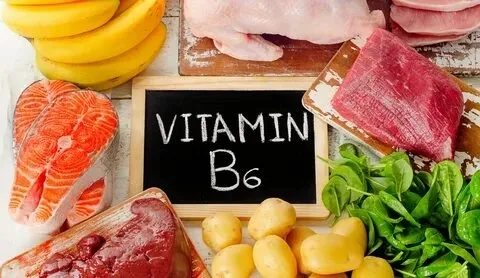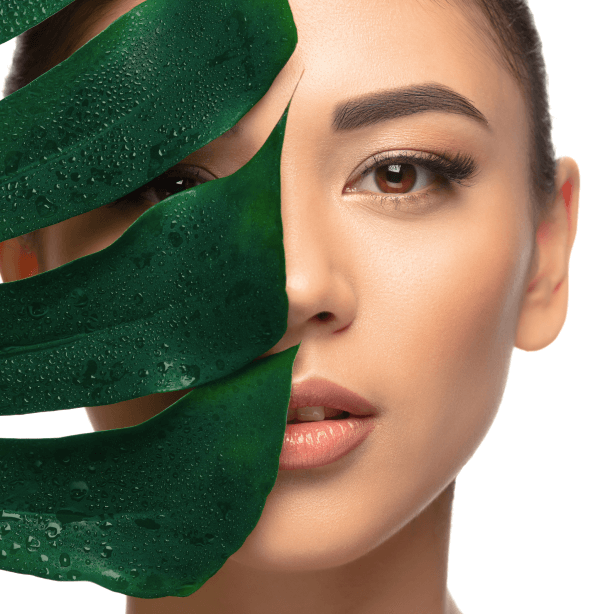
When people think about nutrients that keep them glowing, hydrated, and energized, vitamin B6 often flies under the radar. Yet this essential nutrient—also called pyridoxine—plays a powerful role in skin health, immune balance, and overall energy support. Many wellness clinics highlight B6 in regenerative treatments because of how it helps the body create neurotransmitters, support metabolism, and maintain hormonal balance.
If you’re someone exploring holistic care, whether it’s for clearer skin, improved mood, or natural energy, knowing where B6 can be found is the first step toward better health.
What Exactly Is Vitamin B6?
Vitamin B6 is a water-soluble vitamin that your body cannot store in large amounts, so you need to replenish it daily. It works as a coenzyme, meaning it helps enzymes activate processes like:
- Breaking down proteins, fats, and carbohydrates
- Producing serotonin and dopamine for mood regulation
- Supporting red blood cell production
- Converting food into fuel for daily vitality
Low levels of B6 may lead to skin irritation, fatigue, mood changes, and even weakened immunity. That’s why understanding where to source it—naturally and through supplementation—is so valuable for wellness enthusiasts.
Natural Food Sources of Vitamin B6
If you’re looking to add more B6 through your diet, you’ll be glad to know it’s present in a wide variety of common foods. Here are some of the richest natural sources:
Poultry and Meat
Chicken, turkey, and lean cuts of beef are some of the most reliable sources of vitamin B6. For people following high-protein diets, these foods not only supply amino acids but also give your body the B6 needed to break down those proteins effectively.
Fish and Seafood
Tuna, salmon, and cod are excellent for heart health and are also packed with B6. Adding seafood to your meal plan provides both omega-3 fatty acids and this important vitamin, making it a skin- and brain-friendly choice.
Plant-Based Sources
For vegetarians or those reducing meat intake, plant-based sources include:
- Bananas
- Avocados
- Spinach
- Sunflower seeds
- Chickpeas and lentils
These foods are also rich in fiber and antioxidants, helping to balance gut and skin health together.
Whole Grains and Fortified Foods
Oats, brown rice, and fortified cereals are steady providers of B6. Many modern diets rely on grains as staples, and when fortified, they ensure you meet daily requirements more easily.
Nuts and Seeds
Walnuts, pistachios, and sunflower seeds not only boost healthy fats but also give a dose of B6. They make convenient snacks for energy and metabolic balance.
How Much Vitamin B6 Do You Need?
The recommended daily intake of B6 varies by age, gender, and lifestyle:
- Adults: about 1.3 to 2.0 mg per day
- Pregnant or breastfeeding individuals: slightly higher needs
- Athletes or people with high stress levels may also benefit from additional intake
Because B6 is water-soluble, the body usually excretes excess amounts, making it safer than fat-soluble vitamins. Still, balance is key—too much from supplements can cause nerve irritation over time.
Vitamin B6 and Skin Wellness
For health-conscious readers interested in beauty from the inside out, B6 has special significance:
- Helps reduce seborrheic dermatitis and eczema-like symptoms
- Supports collagen production indirectly through amino acid metabolism
- Balances hormones, which may reduce acne flare-ups
- Enhances overall circulation, supporting a natural glow
This connection between B6, skin rejuvenation, and regenerative wellness therapies is why many integrative clinics discuss it during nutrition consultations.
Supplementation: When Food Isn’t Enough
Even with a balanced diet, some individuals may not get enough B6. This is especially true for:
- People with chronic illness or immune conditions
- Individuals on certain medications (like those for epilepsy or tuberculosis)
- Older adults with reduced absorption capacity
- Those with high-stress lifestyles or nutrient-depleting habits
In such cases, B6 supplements, either standalone or as part of B-complex formulas, can help restore balance. Clinics offering regenerative or functional medicine often evaluate vitamin levels to personalize supplementation plans.
Lifestyle Factors That Influence B6 Levels
It’s not just about what you eat; lifestyle plays a role too. Alcohol, smoking, and high-stress living can deplete B6 more quickly. On the other hand, diets rich in whole foods and mindful stress management practices help conserve and optimize this nutrient.
Signs You Might Be Low in Vitamin B6
While deficiency is relatively uncommon in developed regions, it can happen. Symptoms may include:
- Irritability or low mood
- Cracked lips or inflamed tongue
- Fatigue and poor concentration
- Weak immunity
- Skin rashes around the eyes and mouth
If you notice these signs, consulting a healthcare provider or wellness clinic can help determine whether supplementation or diet changes are needed.
The Bigger Picture: B6 and Holistic Wellness
While it’s easy to think of vitamins in isolation, nutrients often work best as part of a team. For example, B6 works alongside B12, folate, magnesium, and vitamin C for energy production and cellular repair. Clinics offering holistic or regenerative treatments often emphasize balanced nutrition, not just single supplements, for sustainable results.
Simple Ways to Add More B6 into Your Routine
If you want practical strategies, here are easy swaps and ideas:
- Snack on sunflower seeds instead of chips
- Add avocado slices to your morning toast
- Swap white rice for brown rice or quinoa
- Include salmon or tuna in weekly meal prep
- Try hummus made from chickpeas as a healthy dip
These steps not only boost your B6 intake but also support broader wellness goals like better skin clarity, improved digestion, and stable energy.
When to Seek Professional Guidance
If you’re exploring B6 for skin health, mood support, or part of a regenerative wellness journey, professional input is valuable. Functional medicine providers, nutritionists, and wellness clinics can test nutrient levels, evaluate lifestyle factors, and recommend tailored solutions.
Key Takeaway for Wellness Enthusiasts
Vitamin B6 may not be as famous as vitamin C or collagen supplements, but it plays a behind-the-scenes role in keeping your skin radiant, mood balanced, and body energized. By knowing where it can be found—in both foods and supplements—you empower yourself to make smarter, health-forward choices.
If you’ve been wondering whether nutrient imbalances affect your energy, skin, or mood, consider connecting with a wellness clinic or health provider who understands the value of B6 and other essential nutrients. A personalized consultation can guide you toward the right diet, supplementation, or regenerative support tailored to your needs.


